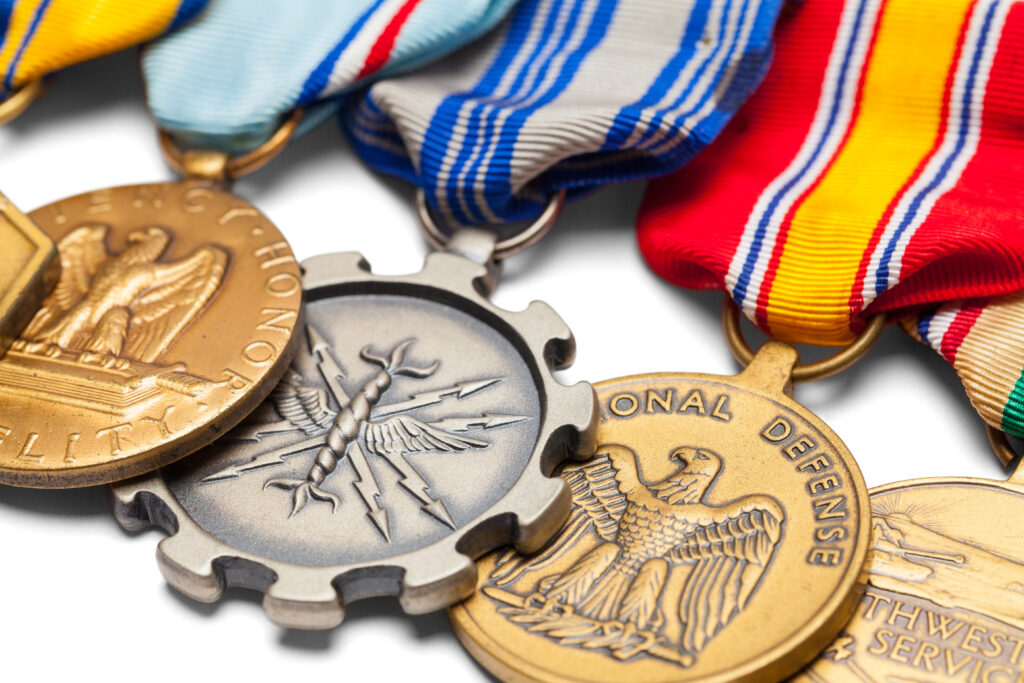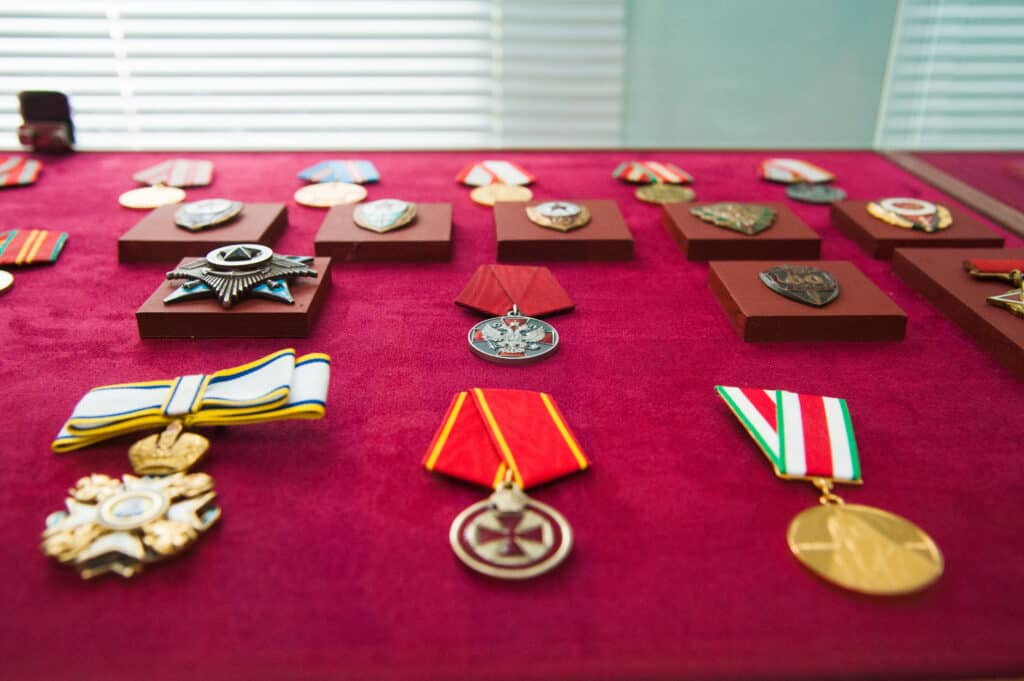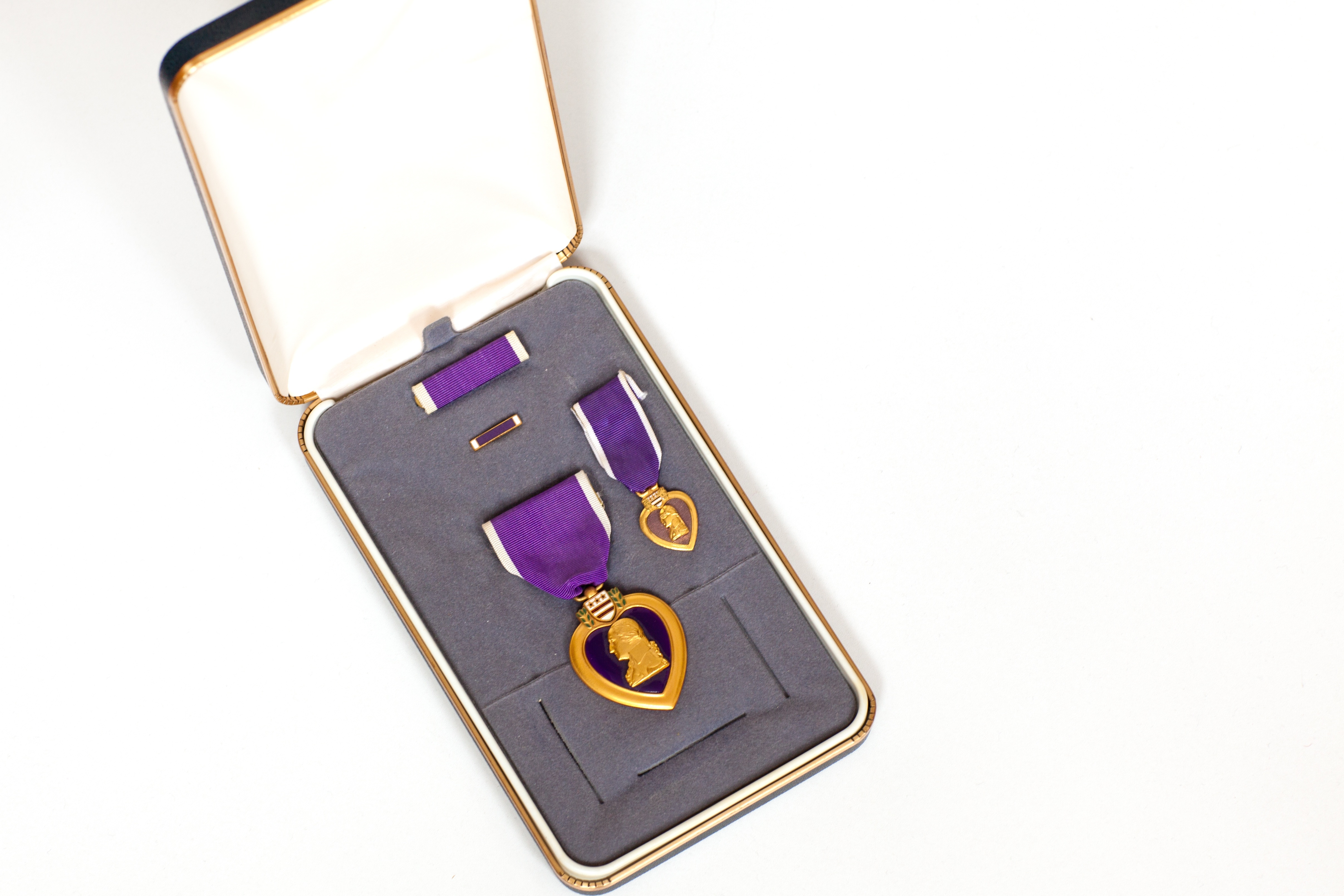
Army medals are symbols of courage, sacrifice, and outstanding military service. They can be awarded for a number of reasons, and many people like to buy and collect them to learn more about history. But what are these awards really worth?
Under certain legal conditions, all U.S. military medals can be bought (with the exception of the Medal of Honor). Many commemorative medals are worth $15-20, while more prestigious awards are worth $50-$100. Historically significant medals may be worth even more than that.
The main value of a military medal is the story and achievement, not the object itself. Many people like to collect ribbons, medals, pins, and other awards for the novelty and history they represent. For a breakdown of a medal’s value, some of the most valuable medals, and some rules to be aware of when selling, read on below.
Most Valuable Military Medals
Over the years, military medals and awards have become popular collector’s items. They are frequently sold online and at auctions. Generally speaking, most military medals aren’t worth a fortune, but historically there have been some extremely valuable medals that sold for a good chunk of money!
5 of the most valuable military medals from around the world include:
| Sgt Tom Palmer’s Queen’s Gallantry Medal | $150,095 |
| RF “Pied Piper” Hamlyn’s Collection | $136,795 |
| John Philips’ Distinguished Service Cross | $182,394 |
| Flight Lieutenant Reid’s Victoria Cross | $509,223 |
| Captain Alfred Shout’s Victoria Cross | $744,834 |
Although these might be the most valuable medals that have ever sold, it’s not guaranteed that similar medals would fetch the same price. A combination of historical context, rarity, and item condition all contribute to the price of valuable medals.

Additionally, some medals are valuable because they cannot be sold! The United States’ highest award is the Medal of Honor, which cannot be legally sold anywhere in the country. Some of the other prestigious awards include:
Medal of Honor: Highest military decoration. It can be awarded to any member of the U.S. military who has distinguished themselves through outstanding acts of valor. It is usually personally awarded by the President of the United States.
Distinguished Service Cross: This is the second highest military medal that can be awarded. It is given to soldiers who go above and beyond in their duty during combat with an armed enemy force. It is only awarded for action in combat.
Air Force Cross, Navy Cross, and Coast Guard Cross: These awards are on equal footing across the different branches of the military. The requirements for these medals is the same as the Distinguished Service Cross, but each one is awarded to soldiers depending on their placement in their individual branch of the military. Again, they are only given for notable acts of service in combat.
Breakdown Of A Medal’s Value
So now we know the maximum value that military medals can be sold for. But it’s likely that your medal isn’t worth thousands of dollars like some of the examples on this list. Many different medals, pins, and other awards are given to soldiers every year, meaning that most of these aren’t particularly rare.
In order to find the value of a certain medal or award, you’ll need to consider a few different factors that could influence its worth.
Raw Material Value
Sometimes called the “bullion value”, this term refers to the materials that are used to create a medal. If the medal is made of solid metal such as silver, gold, bronze, or platinum, the raw materials are sometimes worth more than the medal itself.
These metals are priced per ounce, and the exact rate can fluctuate daily. Most medals will have a small number marked into them that denote the fineness of the bullion, which can be used to calculate the material worth.
For example, pure metal will have a marking of about .999, while sterling will have .925 and coin metal is .900. Once you determine the fineness, you can weigh the medal and multiply the weight x the fineness decimal.
This should give you a pretty good idea of how much the raw materials are worth. Don’t jump to conclusions and melt down a medal too early though! Sometimes they can be worth much more than the sum of their parts.
Sentimental Value
Military medals are often very important to the person who received them, as well as their friends and family. This level of personal attachment can add quite a bit of value to a medal that is on the market.
If someone inherited the medal and is willing to sell it, they might inflate the price a bit above market value because it is personally valuable to them. Collectors and buyers should keep this in mind because low-balling someone’s treasured possession can be a surefire way to break ties!
Collector Value
Basically, the collector value is how much a customer is willing to pay for a certain medal. This level of value will vary from one person to another because many collectors are looking for different things. Some might be looking for a medal from a specific person, while others might collect based on year.
When dealing with older medals especially, the collector’s value can come into play. When there’s not as much personal connection involved, the historical worth of a medal becomes more important than the sentimental value.
Depending on the collector, they also might not mind buying medals with a bit more wear and tear in order to get the one they’re missing.

Insurance Value
The insurance value of a medal is basically the cost-benefit analysis of how much it would cost to find another model of similar quality. People may be willing to pay more for a specific medal if they think it will be hard to find another one for sale.
This is an estimated value of the time and money it will take to either pay full price or find another option. The insurance value can make buyers more desperate to own a certain medal, and thus increase its overall value.
Historical Value
Finally, the historical value of medals should be taken into consideration. Medals are awarded because of outstanding acts of bravery and sacrifice. There is a story behind every medal, and if the background is particularly significant to a collector, it might be much more valuable to them.
In addition, if a medal was owned by a noteworthy person that will make it more desirable as well. There might be a lot of Purple Heart awards out in the world, but only one of them used to belong to John F. Kennedy!
Exploring the background and history of a medal is worthwhile. It can provide extra context and interest to each specific piece, and contribute new value to the person who buys it.
Complications Of Selling Military Medals
Although many people enjoy collecting these pieces of American history and culture, they are still important objects that need to be treated with a level of respect. It should be noted that even if you legally purchase a US military medal, that does not mean that it is appropriate for you to wear it or otherwise claim that it was awarded to you personally.
The Stolen Valor Act of 2005 made it illegal for people to wear military medals they did not earn. It was considered a misdemeanor and was punishable by 6 months in prison (or 1 year if the medal was a Medal of Honor).
This act also sought to restrict unauthorized people from wearing, buying, selling, bartering, trading, or manufacturing any US medals. In 2013 a revised version of the act was introduced, which maintained the first points about forbidding unrewarded people from falsely wearing medals, but no longer focused on the sale of medals (apart from the Medal of Honor).
Although many military medals, pins, and patches are sold on a regular basis in the United States, there are still questions about the legality and morality of this practice.
It has always been illegal for people to buy or sell The Medal of Honor, and there are many debates as to whether or not this no-sell policy should be extended to other medals such as The Purple Heart.

Generally speaking, most people consider it to be acceptable to buy and sell military medals because this gives the veterans and their family the freedom to do what they want with their own property.
Because of the sheer number of military awards in the world, many of them are not of interest to museums, so selling them is one of the main avenues that people use to transfer unwanted medals.
It’s also likely that if this market of medals was forbidden, the sales would be impossible to effectively track and persecute, or would simply continue in underground avenues. The sale of military medals is relatively harmless and it would take too much time and effort to crack down on those who buy and sell of them.
There are no serious legal repercussions for selling most military medals, but they should still be treated with respect and care. They are valuable because of their composition, history, and overall symbolism of their country and its soldiers.